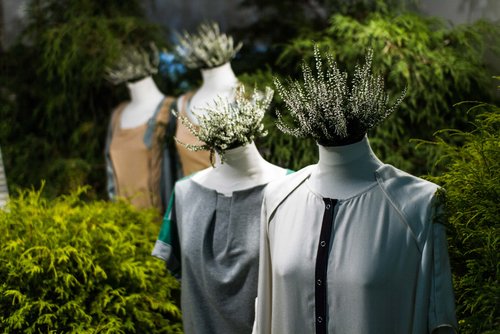Belgium, (Brussels Morning) Portugal showcased its sustainable efforts to build the path towards ending fast fashion during an event hosted by the Press Club Brussels Europe.
The textile and clothing industry is one of the most important sectors for Portugal, accounting for 18% of all employment in the manufacturing industries and 9% of the country’s exports. It ranks 5th on the European market in terms of turnover, the 7.8 billion euros it generates represents 5% of the total EU textile and clothing industry.
“Portugal exports textiles to over 180 markets and the label “Made in Portugal” has a positive reputation worldwide”, said Mário Machado, President of the Portuguese Association of Textiles and Clothing (ATP).
EU textile strategy
On March 30, the European Commission presented a strategy to make textiles more durable, repairable, reusable and recyclable in order to tackle fast fashion, textile waste and the destruction of unsold textiles.
European consumption of textiles has the fourth highest impact on the environment and climate change, after food, housing and mobility. The EU textile strategy wants to ensure that future production of the targeted materials takes place in full respect of social rights.
“Empowering consumers to make more sustainable choices is an important part of the efforts required to create a more sustainable and circular ecosystem,” said Marie-Hélène Pradines, head of Tourism and Textiles Unit at DG GROW, during the ATP’s event.
The EU Strategy for Sustainable and Circular Textiles sets out how textile products on the EU market will be free of hazardous substances and produced in respect of the environment. Producers will have to take responsibility for their products along the value chain, including when they become waste.
Portugal’s success story
“The Portuguese industry’s vision and strategies for 2030 are completely aligned with the Commission’s recommendations, having sustainability as one of the most important development areas,” underlined Machado.
The ATP’s chief said that for the next few years, the Portuguese textile companies’ priorities are the careful selection of raw materials, the intelligent use of resources, investing in more efficient and innovative production methods.
The industry’s priorities also include betting on cleaner energy, minimizing waste and increasing recycling, strengthening the circular economy and improving transparency, traceability and lifecycle assessment.
“To wash clothes at home, it takes about 20 litres of water per kg of clothing. Today, to make simple white T-shirts, it only takes 12 litres of water per kg of clothing. So we have managed in the industry to use less water producing clothes than it takes to wash them at home,” said the ATP’s President.
Paulo Lopes, from JF Almeida (JFA), one of Portugal’s best examples in the textile industry, shared the business’ commitment to reduce its ecological footprint: “We recycle and reuse 40% of the water that enters the dyeing plant. The water reduction translates into more than 6,5 Olympic swimming pools. Moreover, process optimization and machinery upgrades resulted in a 12% reduction in water consumption in 2021.”
War in Ukraine
In light of the disruption caused by the war in Ukraine, the textile sector has not been spared due to rising energy costs. During the event, EURATEX, the European Apparel and Textile Confederation, stressed: “Companies need access to energy at reasonable prices, may those be subsidies, removing environmental levies or VAT from bills and price caps.”
EURATEX defends that the transfer to renewable and cleaner sources of energy needs to speed up to guarantee less dependency. However, it recognizes it is a long process that cannot be achieved in the forthcoming months.
“The textile and clothing industry is facing an unprecedented situation with the rising prices of energy and gas. Many companies are considering shutting down production because of energy costs,” noted the Portuguese MEP Nuno Melo (EPP).




